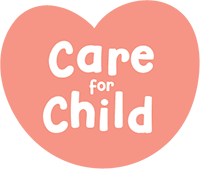Teething is a normal developmental milestone for babies, but it can often be accompanied by discomfort and fussiness in the form of baby teething pain. As your baby's first teeth begin to emerge, they may experience pain, swelling, and increased drooling. This can be a challenging time for both you and your baby, but there are several strategies to help soothe their discomfort.
This guide by Care for Child will provide you with practical tips and information on baby teething pain relief, how to manage teething symptoms and how to create a calm environment for your little one during this phase.
Common Baby Teething Pain Symptoms
Teething, the process of baby teeth breaking through the gums, can be uncomfortable for infants. While it's a normal part of development, it can cause irritability and discomfort. Recognising the signs of teething can help you provide appropriate relief.
- Common Teething Symptoms:
- Increased drooling
- Gum swelling and redness
- Irritability and fussiness
- Difficulty sleeping
- Reduced appetite
- Chewing on objects
- Ear pulling (though this can also be a sign of ear infection)
It's important to note that not all babies experience these symptoms, and some babies may have more severe discomfort than others. If your baby exhibits persistent fever, diarrhoea, or vomiting, it's essential to consult your paediatrician to rule out other potential causes.
When Does Teething Begin
Teething is a natural process where a baby's first teeth break through the gums. While there's a general timeline, it varies from baby to baby.
- Typical Teething Age: Most babies start teething between 4 and 7 months old. However, it's essential to remember that this is a general range, and some babies may begin earlier or later.
- Early Teething: In some cases, babies may show signs of teething as early as 3 months.
- Late Teething: It's also normal for some babies to start teething later, around 8 or 9 months old.
How Long Baby Teething Pain Last
Teething is a gradual process that can span several months. While it's a common misconception that teething causes prolonged discomfort, the intense pain associated with each tooth eruption is usually brief.
- Duration of Discomfort: The discomfort related to a single tooth erupting typically lasts about a week. This includes a few days before the tooth breaks through the gum and a few days afterwards.
- Teething Timeline: Teething generally begins around 6 months and can continue until about 3 years old as all the primary teeth erupt.
- Individual Variations: It's essential to remember that every baby is different. Some babies may experience minimal teething discomfort, while others may have more pronounced symptoms.
While teething can be challenging, it's important to remember that it's a normal part of your baby's development. You can help your baby through this phase with patience and the proper soothing techniques.
Natural Remedy for Baby Teething Pain
Teething discomfort can often be soothed with natural remedies for baby teething pain. If you are looking for how to ease teething pain in babies, these gentle approaches can provide relief without resorting to over-the-counter medications.
- Chewing and Teething Toys:
- Offer your baby clean teething rings or toys to chew on.
- The cold sensation from chilled teething toys can numb the gums.
- Ensure the toys are made from safe, non-toxic materials.
- Gum Massage:
- Gently massage your baby's gums with a clean finger to relieve discomfort.
- Cold, clean fingers can provide additional soothing relief.
- Cold Relief:
- Offer your baby a chilled spoon or washcloth to chew on.
- The cold sensation can numb sore gums temporarily.
Remember to supervise your baby closely while using teething toys or providing gum massages to prevent accidents.
When To Consult a doctor
While teething is a normal part of baby development, there are times when it's essential to consult a paediatrician. Here are some signs that indicate a need for medical attention:
- High Fever: A persistent fever that doesn't respond to other remedies may indicate an infection rather than teething.
- Difficulty Breathing or Swallowing: These symptoms require immediate medical attention.
- Severe Fussiness or Irritability: If your baby is excessively fussy or inconsolable, it's essential to rule out other potential causes.
- Blisters or Sores in the Mouth: These could be signs of a more serious oral issue.
- Lack of Appetite or Weight Loss: Significant changes in eating habits may require medical evaluation.
It's important to remember that while teething can cause discomfort, severe symptoms often indicate another underlying issue. Trust your instincts and consult your paediatrician if you have concerns about your baby's health. By following these guidelines and seeking medical advice when necessary, you can effectively manage your baby's teething discomfort and ensure their well-being.
In Conclusion
Teething is a normal part of your baby's development, often accompanied by discomfort. While there's no magic cure, understanding the signs and implementing soothing techniques can make this phase more manageable. Remember, patience and comfort are key. If your baby's symptoms worsen or you have concerns, consult your paediatrician for guidance. By providing love, care, and relief, you can help your baby easily navigate this milestone.

